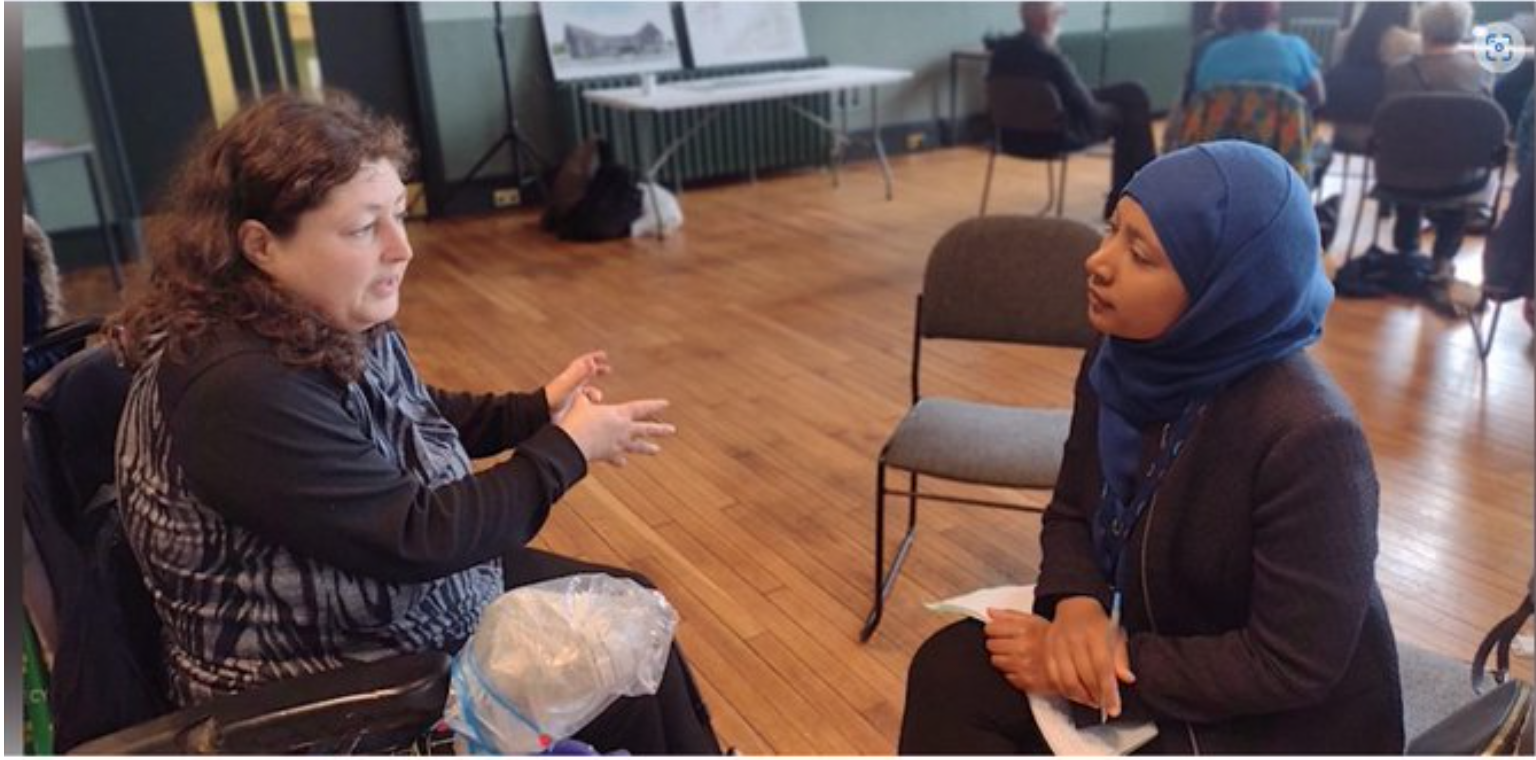By GMHA (@gmhousingaction)
Dear Councillors of the Planning Committee
After last month’s welcome scrutiny by the planning committee toward the co-living applications we are writing to you again to reiterate our opposition to this type of housing development in the city. It is imperative that these attempts to extract as much profit as possible by the real estate industry are rejected. The consequences of waiving them through will likely be faced by working class Mancunians for many years.
In our Homes not Assets report 2018/19, GMHA outlined the nature of this new type of development:
Co-living has been promoted by think tanks such as the centre-right Social Market Foundation as offering cheaper accommodation within major cities. It has been classed as affordable housing by Manchester City Council. However, the necessary compromises in living space and the private nature of the scheme means co-living should not be conflated with shared living found in forms of community-led housing (such as cohousing). The focus on middle-earners makes this a questionable definition of affordable housing, and it therefore has not been classed as such for the purposes of this report. Concerns remain about the living conditions of tenants in such schemes and the long-term impact on local communities.
Below we set out the main reasons why the committee should reject these opportunistic applications. We are depending on you to ensure that the city is not being transformed in the interests of the real estate sector rather that we are building a sustainable and fair city.
- Insufficient space standards
As many of you articulated in the committee residents will be forced to live in tiny, cramped 'standard' (20-21sqm) and 'compact' (18-19sqm) spaces which even the developers in the planning application suggested “would not be acceptable as permanent homes and the applicant accepts that the length of tenure would be restricted to six months”. This factor alone is sufficient to reject the applications. We cannot have housing in Manchester that fails our own space standards. What is the point of standards if they are not kept?
The developers have tried to allay fears about this new type of housing by suggesting in the First Street application:
This type of accommodation could meet demand for shorter term lettings from those on short term fixed contracts, employers looking to house employees or contractors for short periods, people who want a space during the working week, or visiting academics and researchers.
So what they are actually proposing is short-term rental apartments, a housing model designed to meet the short-term needs of business with little interest in the long-term improvement of the area. Anti-social behaviour is common with such schemes, alongside significant extra pressure on local services such as GP surgeries. If the planning officers tried in the last meeting to suggest these standards can be navigated around then we reject such an assessment.
- A cautious approach?
In a December 2019 report, the council itself argued for caution with regard to co-living:
This product is new and untested in the Manchester housing market.
Testing it out by waiving through thousands of units is not a cautious approach, especially considering there are only 1900 co-living beds across the whole of London. If there were any issues, it would be too late for Manchester to address them. There are now two co-living schemes under development that can be used to assess this model: 621 bedrooms at Echo Street, and 800 units at Union II in St Johns: Over 1,400 units is more than sufficient to test the ‘product’. We do not think that any more applications should be granted until these developments are built and operated for at least a two year period. To grant planning permission for any further co-living developments would be to completely ignore the principle of test and reflect. The December report reiterated this need for caution:
Given that the product is untested in Manchester, it is not considered appropriate to approve a significant level of co-living accommodation.
Perhaps most worrying, it appears that the December 2019 report was ‘updated’ by the MCC Executive in July 2020 to facilitate these recent applications, in what looks like a suspicious change of position since earlier in the year. If anything, the Covid-19 emergency makes this type of development far less desirable, with one London council already raising the alarm. MCC argued in its report:
Co-living should add value to existing wider, economic-led, regeneration frameworks, drive employment, create place and support the talent needed to support growth. Co-living developments would require quality design and space standards, except where there is a compelling justification for an alternative approach.
Clearly none of these conditions hold in relation to the proposed schemes, and the Planning Committee need to recognise this.
- Benefits to the city?
Finally, we found it interesting that in at least one of the application “the City Council has a land ownership interest in the site”; hence the committee must be informed about the financial benefits to the local authority that would accrue from this development. This is particularly important as the developer may be using the co-living model to avoid making a financial contribution to the city it stands to profit significantly from. Downing argues in the application that:
Due to the type of accommodation and use class, the development would not appear to be considered in the local planning framework for a contribution to affordable housing or provision of other s106 contribution.
In short thousands of units for which the developers can charge higher rents for smaller spaces, with not a penny going towards affordable housing or neighbourhood improvements. It is an attempt to extract as much profit as possible from the site via a housing model that is neither tested nor required.
- Building a city for whom?
The applications ignore the problems that co-living may cause for the city and leaves us all with a potentially problematic set of building developments that may turn into slums of the future. The only course of action for the Planning Committee is to reject these applications and force the developers back to the drawing board. The consequences of signing off for thousands of co-living schemes would be felt for many years to come, especially by the adjacent Hulme community. We hope that the Planning Committee follow up on their interrogation of this type of housing and show us all you are prepared to act in the interest of working class Mancunians over those of the millionaire property developers. If these applications are waived through, we are certain thousands more co-living units will be built by developers who know they can make even higher returns on their investment. The future of our city depends on you.
23 August 2020
This was sent to the 15 members of the planning committee: Cllr Basil Curley (Chair); Cllr Nasrin Ali; (Deputy Chair); Cllr Shaukat Ali; Cllr Paul Andrews; Cllr Yasmine Dar; Cllr Joan Davies; Cllr John Flanagan; Cllr June Hitchen; Cllr Afia Kamal; Cllr Jill Lovecy; Cllr Jon-Connor Lyons; Cllr Madeleine Monaghan; Cllr Fiaz Riasat; Cllr Mary Watson; Cllr Gavin White.





